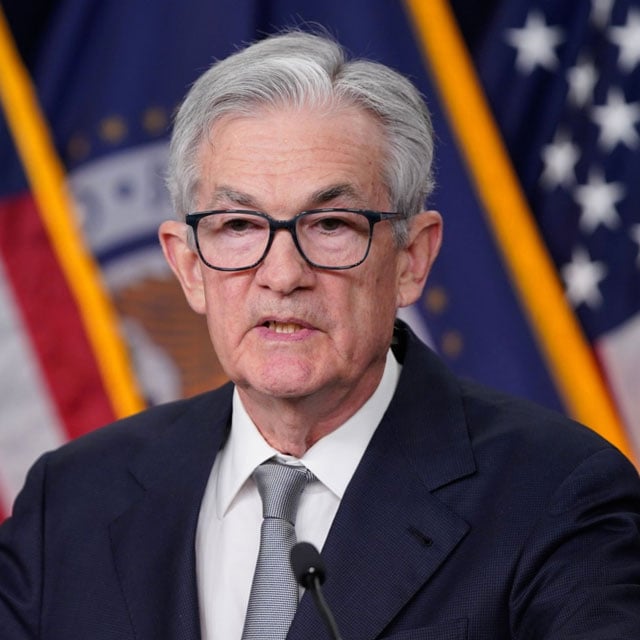Fed Cuts Rates by Half Point In Decisive Bid to Defend Economy

The Federal Reserve lowered its benchmark interest rate by a half percentage point Wednesday, an aggressive start to a policy shift aimed at bolstering the US labor market.
Projections released following their two-day meeting showed a narrow majority, 10 of 19 officials, favored lowering rates by at least an additional half-point over their two remaining 2024 meetings.
The Federal Open Market Committee voted 11 to 1 to lower the federal funds rate to a range of 4.75% to 5%, after holding it for more than a year at its highest level in two decades. It was the Fed’s first rate cut in more than four years.
“This decision reflects our growing confidence that with an appropriate recalibration of our policy stance, strength in the labor market can be maintained in a context of moderate growth and inflation moving sustainably down to 2%,” Fed Chair Jerome Powell said in a press conference following the announcement.
Powell cautioned against assuming the half-point move set a pace that policymakers would continue.
“I do not think that anyone should look at this and say, ‘Oh, this is the new pace,’” Powell said.
Until recently, officials put an emphasis on their quest to stifle inflation. In their statement Wednesday, policymakers indicated they now see the risks to employment and inflation as “roughly balanced.” The committee is “strongly committed to supporting maximum employment” in addition to bringing inflation back to its goal, officials said.
The S&P 500 index swung between gains and losses after hitting an all-time high in the immediate aftermath of the Fed decision. Treasury two-year yields remained slightly lower than before the announcement. Investors are pricing in around 35 basis points of easing at each of the Fed’s next three policy meetings, according to futures.
Policymakers penciled in an additional percentage point of cuts in 2025, according to their median forecast.
Governor Michelle Bowman dissented in favor of a smaller, quarter-point cut — the first dissent by a governor since 2005 and the first dissent from any member of the FOMC since 2022.
In an interview with Bloomberg Television, KPMG Chief Economist Diane Swonk said Powell’s willingness to cut aggressively despite a governor’s dissent was a sign of “how much he wanted this half-percent rate cut.” And getting the rest of the committee to go along, she added, was a “huge victory.”






